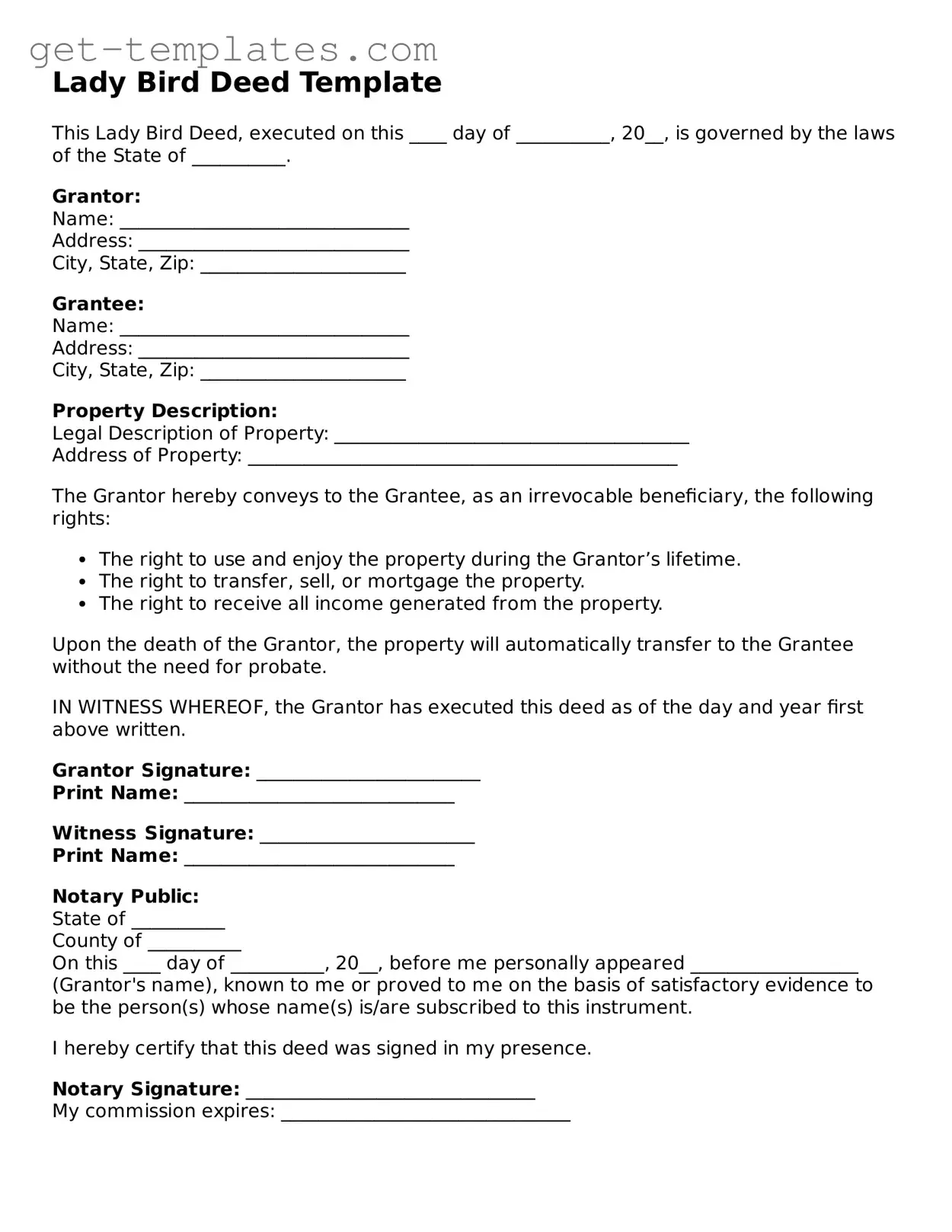Attorney-Approved Lady Bird Deed Form
The Lady Bird Deed is a unique estate planning tool that allows property owners to transfer their real estate to beneficiaries while retaining control during their lifetime. This deed not only helps avoid probate but also provides a way to protect the property from potential creditors. Understanding how this form works can empower you to make informed decisions about your property and legacy.
Get Document Online

Attorney-Approved Lady Bird Deed Form
Get Document Online
You’re halfway through — finish the form
Finish Lady Bird Deed online — edit, save, download made easy.
Get Document Online
or
⇓ PDF Form
